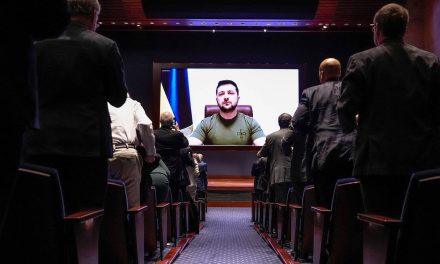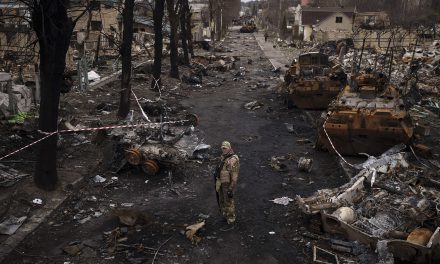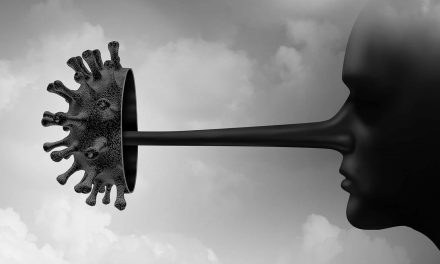
One of the wildest aspects of the first Great Information War is not just that you can follow Russia’s invasion of Ukraine in real time, minute by minute and step by step, but you can also join in.
Because in 2022, information is power. And one of the many huge unexpected geopolitical shifts of the last week is that this power has been returned to the people. On March 4 in Russia, Vladimir Putin, a man who is now scared of his own shadow, took the extraordinary step of attempting to outlaw information. He banned Facebook. He shut down Twitter. He passed a new law that declares journalism a criminal offense: any journalist found to have published “fake news” on the war in Ukraine now faces up to 15 years in prison.
It is, like so many things in the last week, incredible, unprecedented, horrifying – but more importantly it is also desperate and absurd. Because in 2022 you cannot ban information. It is like trying to ban oxygen. It is the kind of move that one of his grey-faced Soviet predecessors might have made. It is as modern and up-to-date as a typewriter. Only a fool would make predictions right now, but here is one anyway: it proves that Putin, the founding father of what has come to be known as “information war,” just lost the information war.
Anything can and may happen. But having dominated the dark arts of disinformation for the last eight years, the Kremlin’s invincible mastery of the information space has been exposed as a sham, a fiction, another lie. Putin has put on the equivalent of a pair of bell-bottoms and is dad-dancing across the internet. Meanwhile Ukrainian president Volodymyr Zelenskyy is not just commanding his armed forces: he is commanding TikTok, Instagram, Twitter, Telegram. He’s simultaneously available across all social media platforms – hybrid warfare’s first hybrid leader.
If this sounds like wishful thinking, it is. Russia’s war on journalism and journalists, like its war on Ukraine, is unspeakably chilling. But it is also like watching Stalin take on the TikTok kids. Meanwhile, Zelenskyy has not just put out a call for foreign fighters – anyone prepared to get on a train and pick up a gun – he is also being assisted by a crack squad of armchair intelligence officers.
Because one of the most remarkable aspects of the war so far is how anyone with a smartphone can play a role in the extraordinary Ukrainian resistance. “Osint” researchers – open source intelligence gatherers – are methodically scouring the internet for the latest photos and videos coming out of Ukraine and verifying and geolocating them in real time.
Every tank is being logged. Every truck and every troop movement is tracked, registered and added to open source maps and databases. This is a country of 44 million people recording every twitch their Russian invaders make. It’s a firehose of real-time information that, with the help of this volunteer army, is being turned into real-time military strategy.
On March 7, I chaired a panel with Eliot Higgins, founder of the online investigative organization Bellingcat, who has pioneered so many of these open source techniques and whose team has been responsible for many of its most astounding feats – identifying Sergei Skripal’s poisoners, to name just one. What distinguishes this war, Higgins says, is that it is the first time the Osint community has mobilized in real time.
“It happened in Syria,” he said. “But it took time.” And in that time lag, lies, disinformation, confusion dominated. This time around, he said, the disinformation just has not had the chance to take root – a result not just of this great civilian information army but of U.S. intelligence too. It took the unprecedented step of releasing its findings to the world ahead of the invasion. It informed us that there would be fake news about fake bombs, and when there were, we watched them being debunked in real time.
The world is terrible and dark, and so much of this is on us: it is the corruption of our governments with their offshore structures and oligarch-friendly libel laws that is responsible for so much of this. That and the insanity of allowing Silicon Valley monopolies to police the platforms that provided Putin with his attack surface. All this has come back to bite NATO, and there are truly terrifying possibilities ahead. But not since 2010 and the Arab spring has it felt so acutely like technology could be the people’s friend.
It is also why we must, must, must call out the fundamental untruth that underpins this, the Kremlin’s war on truth. Russia did not invade Ukraine last week. It invaded Ukraine in 2014. And it is not just at war with Ukraine. It is at war with us too. In February 2014 it launched a joint military assault on Ukraine and the west.
We did not know it then. But we do now. Because the first stage in Putin’s invasion of Ukraine was an attack on information. He distorted reality, injecting the toxin of fake news – a military strategy that he deployed against us at the exact same moment across the exact same platforms.
We knew this because it is laid out in forensic and exhaustive detail in what may be one of the most misunderstood documents of modern times: the Mueller report. We just failed to understand what it meant. But now we can and must understand, because the curtain has been lifted. Putin has been at war with us for the last eight years. A man we realized last week is the Wizard of Oz. He’s a man hiding behind a curtain, a veil of lies. A man hiding behind a curtain with a stash of nuclear warheads.
We finally have the light we need to see him for who he is, to understand the war he has been waging against us in plain sight, aided by his quisling western allies – Fox News and all the chocolate soldiers of “the war on woke.” It just may be too late.
There has not been such a stark and universal moment of moral clarity for 82 years. This is lies versus truth. It is darkness versus light. It is Stalin versus the TikTok kids. But Stalin has the nukes. He has the thermobaric weapons. He has the means and motivation to flatten not just Kyiv but the rest of us too. And what happens next is anybody’s guess.
Cаrоlе Cаdwаllаdr
Іnа Fаssbеndеr
Originally published on The Guardian as Social media turn on Putin, the past master
Help deliver the independent journalism that the world needs, make a contribution of support to The Guardian.














